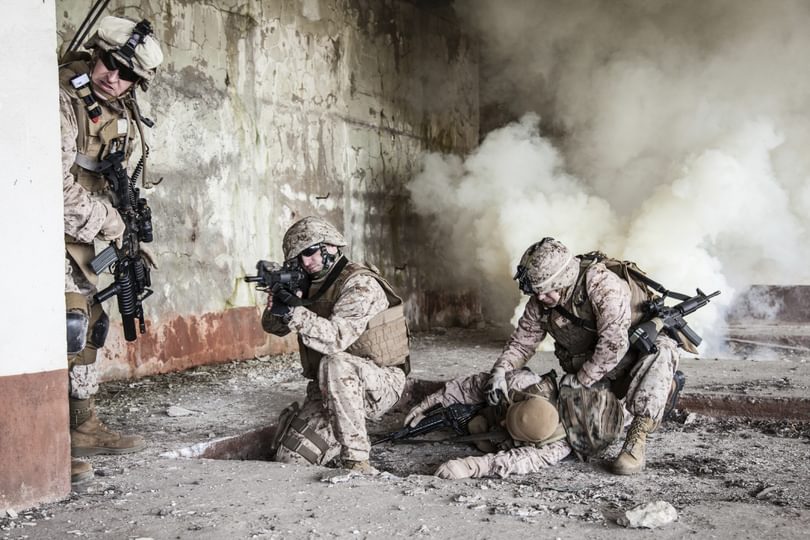
In July, two Oxford Martin programmes hosted the third annual Transatlantic Workshop on International Law and Armed Conflict.
The two-day event, which took place on 15 and 16 July, brought together academic, military, and government experts from both sides of the north Atlantic to exchange views on contemporary challenges in International Humanitarian Law.
The Oxford Martin Programme on Human Rights for Future Generations and the Oxford Institute for Ethics, Law and Armed Conflict co-hosted the workshop with The International Committee of the Red Cross' Washington and London delegations; the Robert S. Strauss Center for International Security & Law at the University of Texas; and South Texas College of Law, Houston.
The 2015 workshop included academics, senior government officials and military officials from the UK, continental Europe, North America and Israel. The first day’s focus was on direct participation in hostilities, humanitarian access in armed conflict and foreign intervention in non-international armed conflicts. Day two focused on the application of international humanitarian law, including by national courts, international courts and tribunals, and human rights bodies.
Dr Helen McDermott, Post-Doctoral Research Fellow, Oxford Martin Programme on Human Rights for Future Generations, said: “This workshop gives experts the change to share their perspectives. It means that they can compare practices and policies on a range of issues relating to law and armed conflict. This is invaluable as it generates mutual understanding across jurisdictions and between different professions.”
The first workshop was held in the summer of 2013 with participants from the US, Canada and the United Kingdom, focusing on fundamental questions of international law relating to military operations. The event placed a particular emphasis on the overlapping areas of International Humanitarian Law and International Human Rights Law. In 2014, the program expanded to include participants from Continental Europe and Israel and focused on security cooperation, the end of conflict, and the use of force in counterterrorism operations.
Dr McDermott concluded: “We hope that the ideas and debates that emerged from the workshop will positively inform law and practice in the area, on both sides of the Atlantic.”
In keeping with previous years, some of those who attended the workshop will participate in a series of blog posts focusing on specific topics that were discussed. The series will be coordinated and hosted on Lawfare, EJIL:Talk, and Intercross blogs.